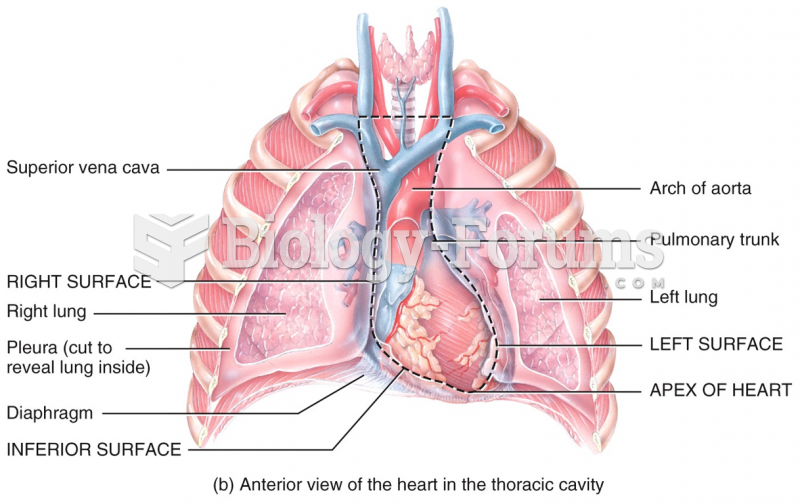|
|
|
There are major differences in the metabolism of morphine and the illegal drug heroin. Morphine mostly produces its CNS effects through m-receptors, and at k- and d-receptors. Heroin has a slight affinity for opiate receptors. Most of its actions are due to metabolism to active metabolites (6-acetylmorphine, morphine, and morphine-6-glucuronide).
One way to reduce acid reflux is to lose two or three pounds. Most people lose weight in the belly area first when they increase exercise, meaning that heartburn can be reduced quickly by this method.
The human body produces and destroys 15 million blood cells every second.
When blood is exposed to air, it clots. Heparin allows the blood to come in direct contact with air without clotting.
More than 30% of American adults, and about 12% of children utilize health care approaches that were developed outside of conventional medicine.







